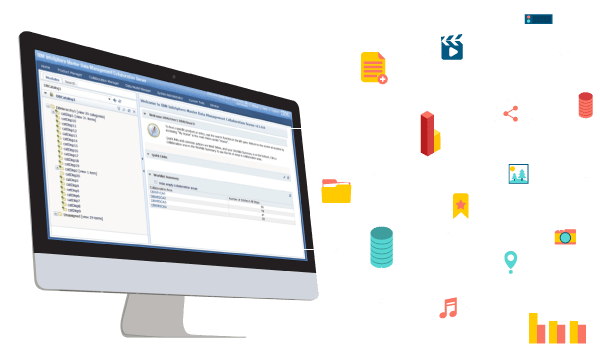
Compliance is at the top of priority lists for companies across the world nowadays. Having an effective and streamlined data management has never been more imperative, given that master data is often a company’s key asset. Good asset management services will offer the ability to file and access related documents and digital assets easily.
Data is precious in today’s economy. Hence, must be adequately protected and appropriately managed. Commonly master data items are thought of like products and customers. A typical master data list may also include locations, employees and other assets. In many companies, the data is often unstructured, meaning the content can be in emails, word documents and spreadsheets.
Master data services allow information to be tagged and indexed so that the unstructured data is given a form and can be sorted. Where time is often lost, finding files and locating sources, data management eliminates any such inefficiency. Data management services also capture transactional data relating to the sale of products, invoices, and financial interactions. As a result, implementing a high-quality data management system gives your organisation transparency as well as a stronger grasp of all your working processes.
Organising your data by using a well-regarded data management service allows you to extend the reach of your business. One area where data management is particularly useful is your brand image. Data management systems allow you to update content and copy across a number of channels so that it is unified. Your brand’s voice will always be clear, and your message will be current, as a result.
Data management services are a central hub for storing critical information about your company and clients. Because data is often reused, data management systems can share information about customers with other systems. Doing so helps companies hone their products and services by understanding customer behaviour.
Furthermore, the best data management services offer tools for successful project management. Information can be organised into hierarchies, with the data being managed by appointed stewards within the company. Master data management systems will capture hierarchies and also have the capacity to modify them as necessary. The best data management systems are flexible enough to respond to changes which ripple up the hierarchy so that accuracy is always maintained.
Numerous business types can benefit from data management systems, which can be tailored to the relevant area of industry. For example, vendor specific modules are available, which make capturing and managing supplier data simple. Data management systems will streamline workflow with the ability to validate product data and bulk edit. Publishing modules are available to allow clients to catalogue effectively and ensure accuracy.
In today’s fast-paced world, where data has become such valuable currency, having a data management system which can keep up is crucial.










